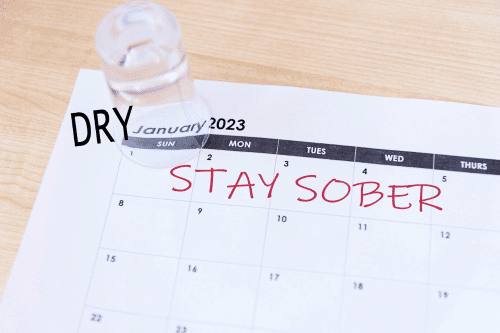Remaining Sober: Building a Strong Foundation
Long-term sobriety is a lifelong journey that requires daily effort and strong support. At Opus Health, we understand that sobriety is about more than just avoiding alcoholic drinks or your past drug of choice. It’s about rebuilding your life, developing healthy coping mechanisms, and finding a new path to sobriety. This guide offers effective strategies for staying committed to your recovery journey.
Understanding Personal Triggers
People in recovery must understand personal triggers that can lead to alcohol misuse or drug addiction. Triggers include stress, negative health effects, certain locations, or people such as former drinking buddies. Identifying these triggers early helps reduce the risk of relapse and maintain long-term sobriety.
Developing Self-Discipline
Self-discipline is key in overcoming compulsive behaviors and managing the influence of alcohol or other substances. Learning to say no in risky situations, practicing mindfulness meditation, and creating measurable goals are important parts of the recovery process.
Building a Supportive Network
A strong social circle is essential. This includes supportive friends, family, healthcare providers, and peers in 12-step meetings. A safe space filled with positive influence helps keep individuals in treatment grounded and motivated on their road to recovery.

Preventing Relapse
Relapse prevention is part of every successful recovery program. Using relapse prevention strategies, such as therapy sessions, meditation practices, and behavioral therapies like Cognitive-behavioral therapy (CBT), helps break the cycle of addiction and supports sustained sobriety.
Identifying Relapse Warning Signs
Common warning signs include withdrawal from social connections, elevated stress levels, and idealizing past drinking days. Recognizing these red flags and addressing them through addiction treatment programs can reduce the risk of relapse.
Implementing Structured Scheduling
Sticking to a structured routine in everyday life helps create balance. Incorporating therapy sessions, healthy food preparation, 12-step program meetings, and service commitment tasks supports mental health and promotes a healthy lifestyle.
Embracing Healthy Living
A healthy body supports a healthy mind. Exercise, a balanced diet, soft drinks instead of alcohol, and rest all contribute to physical health and emotional stability, which are vital in the journey to sobriety.
Maintaining Financial Focus
Avoiding alcohol addiction and drug use helps restore financial health. By limiting spending on substances and focusing on financial planning, individuals in recovery reduce stress and support their path to recovery.
Engaging in Aftercare Programs
Aftercare options such as mutual-help groups, SMART Recovery, and Comeback Care help maintain participation levels in recovery. These programs support long-term sobriety and provide tools for coping with challenges in daily life.
Benefits of Professional Help
Treatment centers offer individualized treatment plans to match unique needs. From inpatient care to outpatient support, addiction treatment facilities provide formal treatment backed by the National Institute on Drug Abuse and the National Institute on Alcohol Abuse and Alcoholism.
Building Healthy Relationships
Recovery means ending unhealthy connections and building healthy relationships. Attending family therapy sessions and staying close to those who support your commitment to sobriety strengthens the recovery journey.

Attending Peer Support Groups
Groups like Alcoholics Anonymous and other 12-step organizations create a network of friends who understand the process of recovery. Alcoholics Anonymous World Services offers resources to guide members through 12-step contexts.
Cultivating New Traditions
Building a sober lifestyle includes creating new habits. Replacing drinking outcomes with activities like volunteering, exercising, or soft drink outings with a supportive friend adds joy and structure to everyday life.
Avoiding Risky Situations
Avoid places and events where alcohol use disorder or drug use is common. Stepping away from the middle ground and choosing safe, substance-free environments helps protect the recovery journey.
Establishing Goals and Creating a Plan
Setting achievable goals and measurable steps supports long-term success. These goals can cover life domains like work, health, and relationships, helping individuals in treatment stay focused and engaged.
Celebrating Milestones
Whether it’s short-term sobriety or years of recovery, each milestone matters. Acknowledging different lengths of sobriety encourages continued growth and reinforces your contribution to sobriety.
Dealing with Nifaliophobia (Fear of Sobriety)
Nifaliophobia, or fear of sobriety, is common, especially early on. This fear may stem from past trauma, mental health issues, or anxiety about a sober life. Talking about this in therapy or mutual-help groups helps remove the fear and reinforce your commitment to sobriety.
Understanding and Educating
Education empowers people. Understanding the impact of substance use disorder, mental illness, and co-occurring mental health disorders prepares individuals for challenges and helps their loved ones offer proper support.
Practicing Mindfulness
Mindfulness meditation and other grounding tools help manage stress levels. Practicing awareness in the moment reduces anxiety and improves mental health benefits in the recovery process.
Seeking Professional Support
Individuals with alcohol use disorder or mental health conditions benefit from support at a licensed treatment facility. Professionals offer addiction treatment, Interpersonal therapy, and guidance backed by organizations like the Mental Health Services Administration.

Practicing Self-Care
Self-care reduces burnout and supports mental health. From taking walks to attending family therapy, small actions in daily life promote a sober lifestyle and help avoid relapse.
Setting Realistic Goals
People in recovery benefit from setting realistic and achievable goals. These should reflect personal values and current abilities, avoiding burnout or frustration during the recovery journey.
Managing Stress Positively
Addictive behavior often stems from unmanaged stress. Replacing these habits with healthy coping mechanisms such as exercise, journaling, or 12-step program engagement supports a balanced emotional state.
Emotional, Physical, and Social Benefits of Sobriety
Sobriety improves life across all domains. It enhances physical health, emotional well-being, and connection with others. A sober life allows for deeper relationships and clearer thinking without the negative effects of alcohol misuse or substance abuse.
Approach with Commitment and Resilience
Every path to recovery is unique. Whether someone looks up to figures like Matthew Perry for inspiration or is just starting treatment, the key to success is a strong commitment to sobriety and the resilience to continue—even when it’s hard.
Frequently Asked Question's
Relapse prevention starts with identifying triggers, managing stress levels, and sticking to a structured daily routine. Participating in a recovery program, attending 12-step meetings or SMART Recovery, and practicing healthy coping mechanisms like mindfulness meditation can help maintain long-term sobriety. Ongoing therapy sessions and a strong support network also reduce the risk of relapse.
Motivation often comes from setting measurable goals and celebrating small wins along the way. Staying active in peer support groups like Alcoholics Anonymous or mutual-help groups keeps you connected and accountable. Remembering why you started—whether it’s for physical health, mental health, or rebuilding your life—helps strengthen your commitment to sobriety.
Yes, avoiding risky situations that could lead to alcohol misuse or substance abuse is important. This includes staying away from former drinking buddies, environments linked to your drug of choice, or any place where addictive behavior was encouraged. Focus on building a safe space and a healthy social circle that supports your recovery.
Continued support after formal treatment is strongly recommended. Many individuals in treatment benefit from ongoing care through outpatient services, therapy, or aftercare programs. Working with a healthcare provider ensures your progress continues and helps address any co-occurring mental health disorders, increasing your chances of sustained sobriety.




